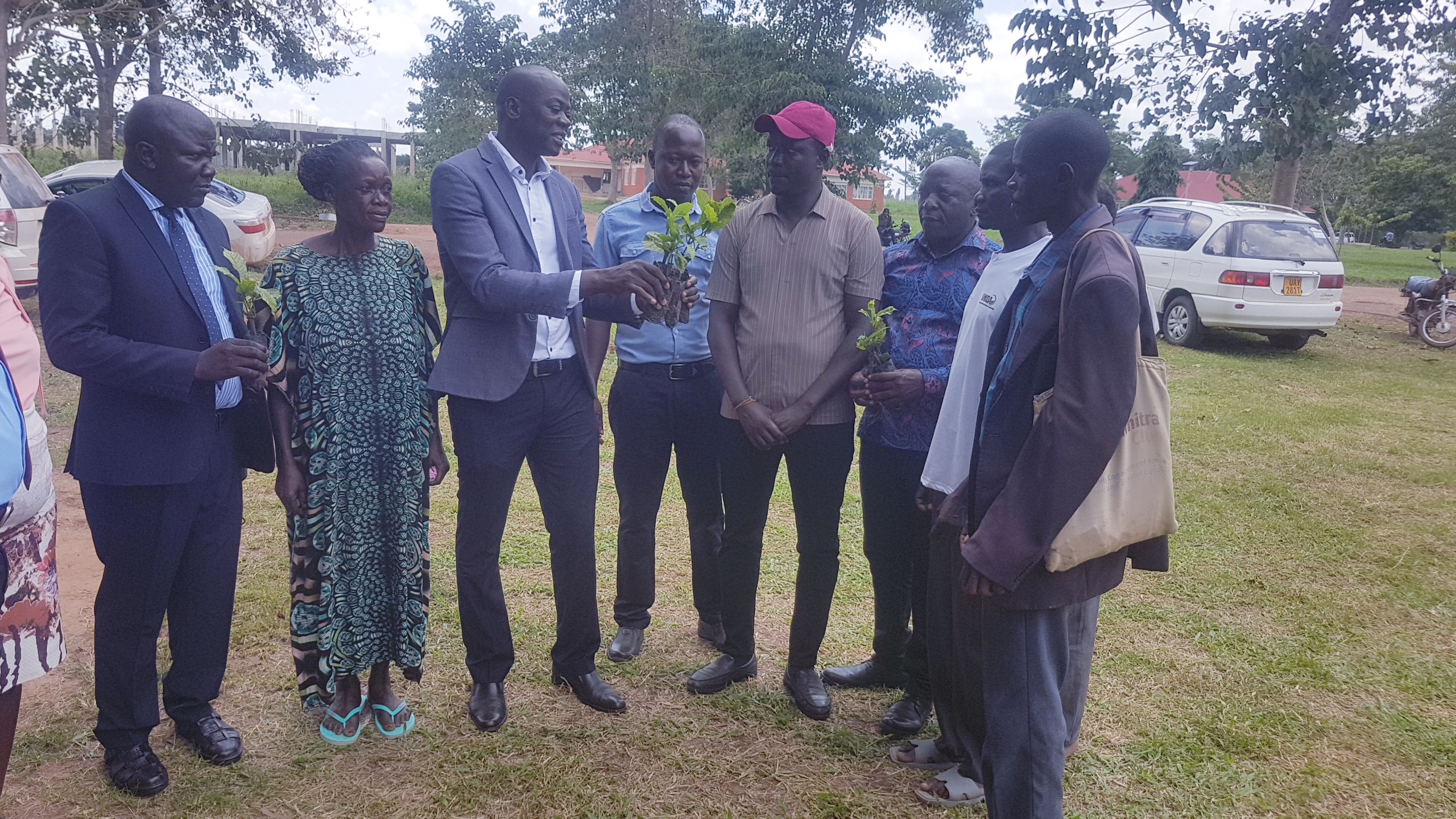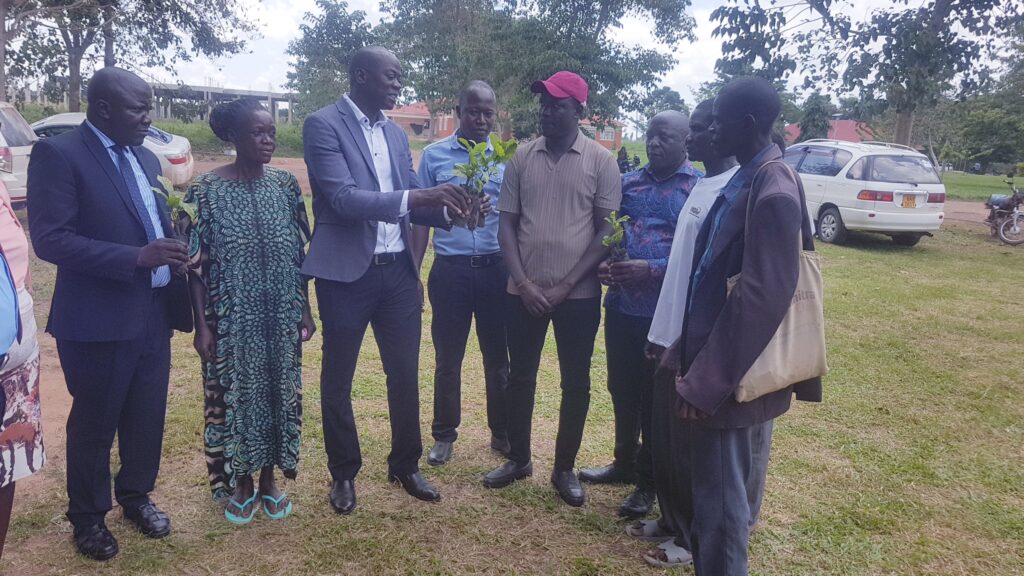
 Hot FM
Hot FM

 Hot FM
Hot FM
13 August 2025, 2:04 pm

By Sarah Ejang
Amolatar District has taken a significant step towards enhancing its agricultural productivity with the recent delivery of 80,000 coffee seedlings, valued at Shs 160 million, from the Ministry of Agriculture, Animal Industry and Fisheries.
This initiative forms part of broader efforts to promote commercial agriculture and boost wealth creation within the district.
The District Chief Administrative Officer, Mr Paul Samuel Mbiwa, expressed gratitude to the government for its unwavering support in using agriculture as a tool for poverty alleviation. Speaking during the reception of the consignment supplied by Blessed Tree Planters and Agro Distributors, Mr Mbiwa stressed the critical role agriculture plays in the local economy.
He urged community leaders and stakeholders to encourage farmers to embrace coffee cultivation, challenging the misconception that the crop is unsuitable for the region.
“Despite our request for 400,000 seedlings, receiving only 80,000 is a clear indication of the high interest among our farmers,” Mr Mbiwa said.
He called on agricultural extension workers to offer the necessary support and guidance to ensure farmers successfully cultivate coffee.
“Coffee is not just a crop; it is a pathway to economic empowerment. We must work together to encourage our farmers to take this opportunity seriously and show that coffee can thrive here.”
Amolatar Assistant Resident District Commissioner, Mr Pule Boniface, echoed Mr Mbiwa’s remarks, stressing the government’s prioritisation of coffee as a cash crop under the four-acre model.
He urged the district’s technical staff to document the achievements of successful coffee farmers and participants in poverty alleviation programmes.
“Success in coffee farming should be well-documented so we can showcase the potential it holds for transforming communities. It is vital that we highlight these stories, as they can inspire greater participation.”
Adding to the optimism, Regional Agricultural Officer Mr Andrew Okello noted that the clone variety of coffee seedlings provided is known for its high yield and quick maturation period of just two years, making it an economically viable option for farmers keen to enter the coffee market.
“I encourage our farmers not only to plant these seedlings but also to consider raising additional seedlings to supply to other farmers and the government. This can lead to expanded business opportunities and increased employment in our district.”
The introduction of these coffee seedlings marks a pivotal moment for Amolatar District, offering a pathway to economic growth through improved agricultural practices and increased opportunities for farmers. With collective effort and proper guidance, coffee cultivation is expected to flourish, bringing a more prosperous future for the community.